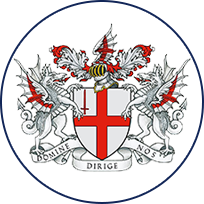Making Scrubs for Hospices
Arena Reports
There is no denying it, 2020 had an impact on all of us. It showed people rising to the challenge and performing their duties with even more care and devotion than before.
They took personal risks to help others,
and it was only right that they should
receive some assistance.
Many of our brethren feel deeply in
their heart a constant drive to help.
W Bro Selwyn Foreman, LGR from
Kindred Arts Lodge No 5784 has always
been involved with local charities, and
this year was no exception. For many
years, along with the Rotary Club, he
has provided support to local hospices.
But in April this year, it became apparent
that those hospices were going to
struggle. For one thing, they were not
getting the Personal Protective
Equipment they needed for the safety
of their nurses and doctors.
WBro Foreman decided to do
something about it. He used all his
connections and influence within the
Neighbourhood Watch and the Rotary
Club of Edgware & Stanmore to
organise events and raise money for the
local charities and hospices.
But money, necessary as it is, isn’t all
that can help. W Bro Foreman was
determined to do something beyond
fundraising. He put some notices out
to attract other volunteers and, within
hours, received enthusiastic responses
from a sewer, a garment manufacturer,
a driver and a graphic designer. All of
them were eager to help whichever way
they could during this awful crisis.
The small team came together. The first
job was to find out how many scrubs
were needed. They contact St Luke s,
Kenton, the Peace Hospice, Watford
and Michael Sobell, Northwood and ask
them what they needed.
The next step was to contact a local
Scrub Hub, one of the many teams of
seamstresses making scrubs for NHS
hospitals; but all were too busy to assist
them. The team had to be more
resourceful.

WBro Foreman should know all about
fabric and garments. After his
grandfather came over from Minsk, he
exercised his tailoring skills as a bespoke
men’s tailor opposite the Hackney
Empire in the 1920’s. But that
experience hadn’t transferred to Bro
Foreman; he had to learn everything on
the go.

It took a few calls to various contacts
throughout London to reach out as far
and wide as they could. They got in
touch with specialists in fabric cutting
and several seamstresses from northwest
London and South Herts. All were
delighted to bring their skills to help
out. Finally, WBro Foreman contacted
furloughed warehouses that had garment
and material ready to be used. The team
grew, even getting its experienced
quality controller to check all the
finished scrub sets.
The material had to meet the NHS
specification: colourfast up to 60 degrees
centigrade, and the weight above 115
grams per square metre. The team
borrowed the design from another
scrub-hub and started with a pilot for
the two-piece outfit in six sizes. Then
they put all of them to the test of the
scrub-hub. After they passed the NHS
quality checks, they could work in
earnest and take orders.

They established routing schedules for
the collection and delivery of fabric and
finished goods between warehouses,
cutters, sewers and hospices. The
biggest challenge of all was to comply
with social distancing. It forced the team
to adapt to new ways of working.
In the end, it was all worth it. Nothing
could have been a better reward than
the appreciative smiles on the faces of
the nursing directors at the hospices.
Congratulations to Bro Foreman and
his team.


This article is part of the Arena Magazine, Issue 43 January 2021 edition.
Arena Magazine is the official magazine of the London Freemasons – Metropolitan Grand Lodge and Metropolitan Grand Chapter of London.
Read more articles in the Arena Issue 43.

